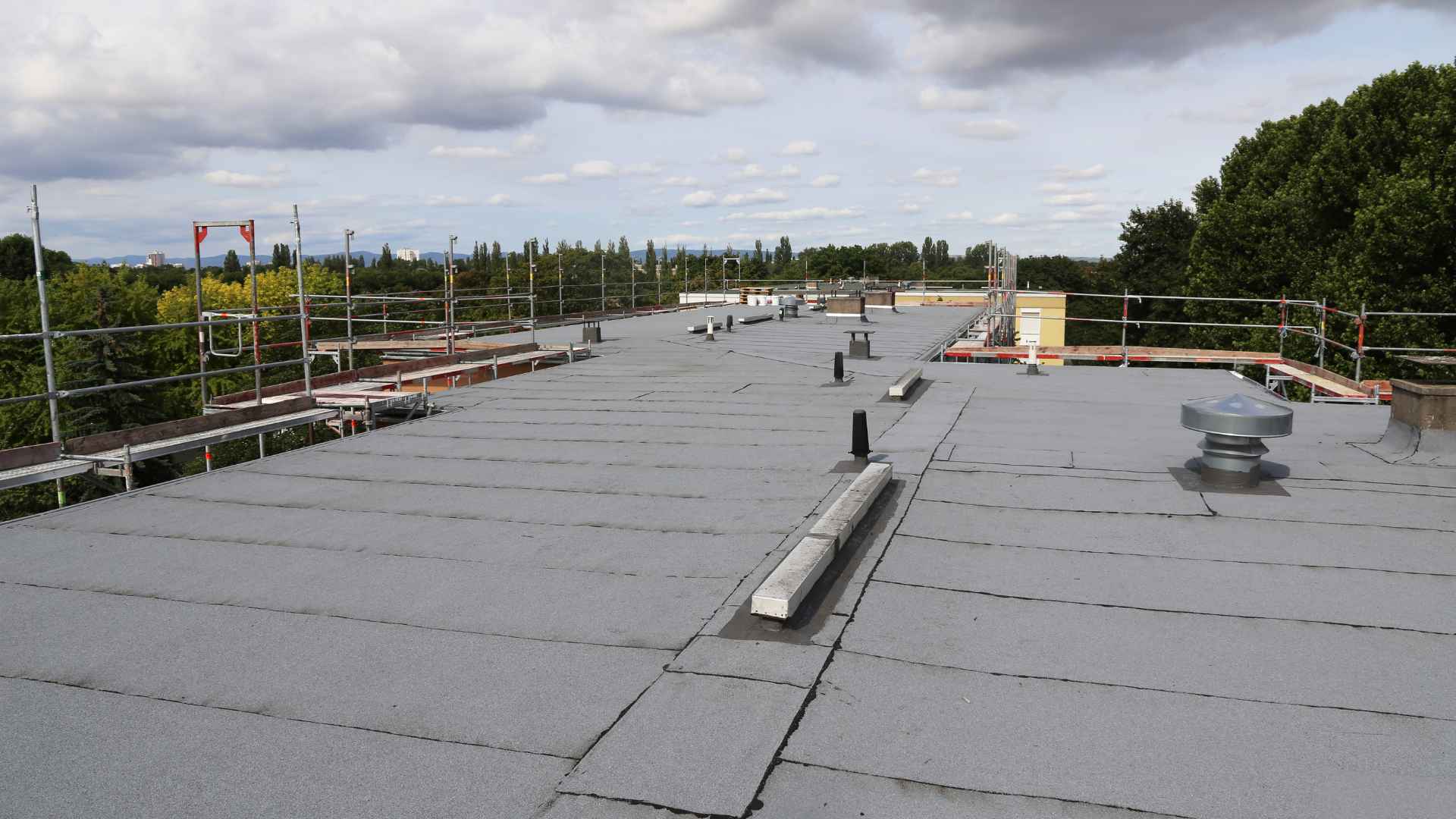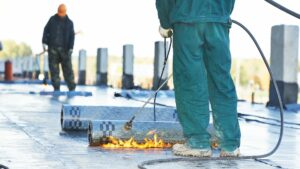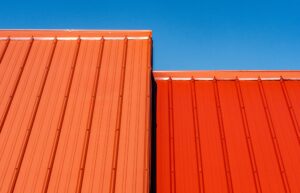Water damage isn’t just an inconvenience. It’s a potential health hazard. It can damage the structural integrity of your commercial building, promote dangerous mold growth, and create unpleasant odors and allergic reactions.
Roof waterproofing is one of the most important ways to keep your property safe. Read on to learn some tips for preventing roof water damage in commercial spaces.
Get Your Roof Ready for Waterproofing
Before calling in roof repair and replacement experts, you should get your roof ready for waterproofing. Have a commercial contractor go onto the roof and get rid of dead leaves and branches. This debris can create a dam that traps water, so eliminating them is the first step to waterproofing.
Next, have contractors prune nearby trees. Branches can fly off in wind and hit the roof, creating debris. They also can cause damage if they’re large enough.
At this point, you’re ready to begin the waterproofing process.
Call the Pros
It’s important that you don’t DIY your roof waterproofing. You don’t have the knowledge or tools to waterproof it in the right way. You’re likely to make mistakes that render the result ineffective.
This isn’t just a waste of time. It’s also a waste of money since you’ll need to call in experts to fix your mistakes.
DIY prevention of roof water damage also is potentially unsafe. You’ll need the right boots, tools, and equipment to remain safe while up high. Experts are trained in how to walk on commercial roofs and get your job done without slipping.
Experts also offer a ton of help with the waterproofing process. They can help you figure out the most efficient waterproofing method for your specific roof shape, building size, and shingle type. They can also answer any questions you have about the process so you stay in the know.
Get a free estimate and talk about your specific needs. Make sure that you contract with someone who has over a decade of experience. This will provide you with the peace of mind that comes with knowing your commercial property is in good hands.
Understand Roof Waterproofing Applications
You likely will also want to understand what waterproofing processes experts may use.
Applying a thermoplastic polyolefin (TPO) roof membrane is one of the most common commercial waterproofing methods. Its white surface reflects heat instead of absorbing it. This means that it will keep the building interior cooler and more comfortable.
The membrane stops water from leaking down into the roof or attic. It’s an effective barrier between the elements and the roof itself. It basically catches any water that lands on the roof and runs it through the gutters before disposing of it.
A polyvinyl chloride (PVC) membrane works similarly to a TPO alternative. The main difference is that PVC membranes have been around longer than TPO membranes, making them a tried-and-true classic. They also are more flexible and last about 25 years.
Ethylene propylene diene terpolymer (EPDM) roof membranes are made of black synthetic rubber, so they do absorb light. The benefit of this, however, is that it does not get dirty like a white membrane might. It’s better for roofs that people can see from a window, though others create a more comfortable building interior.
One of our main roof waterproofing tips is to ask experts which of these membranes they intend to use (if they plan to use any). You can converse with them about your options and help determine which you think is best.
What Else Does Roof Waterproofing Entail?
Sometimes, professional waterproofing doesn’t come in the form of a membrane coating. You may have experts replace missing or damaged shingles that let moisture into your commercial venue. Breakage allows water to seep in and can ruin furniture, destroy electrical lines, create a fire hazard, and cause dangerous black mold to grow in your building.
In other cases, attic insulation will be sufficient for roof waterproofing.
Temperatures inside a building can fluctuate and cause problems for the roof. When you insulate your attic or the crawlspace under your roof, you stop moisture from getting trapped there. Condensation and rain damage won’t be an issue, so you won’t need to worry about the building’s structural integrity.
Know What Questions to Ask
When hiring a professional to waterproof your roof, make sure that you ask the right questions. This is critical because you want to make sure that you’re hiring a top-notch contractor. You also want to know what will be happening with your roof so you can inform tenants, employees, and visitors within your commercial building.
Make sure to ask about a potential contractor’s experience and education. See what certifications they have and how long they have been repairing commercial roofs. This will give you an idea of what quality of work to expect.
Inquire about whether they have liability insurance. This isn’t just a legal necessity but also will save you from a potential lawsuit if something goes wrong. When talking about paperwork, ask about their permits and other essential qualifications.
Check Your Roof Regularly
After the waterproof job is done, it’s important that you don’t become complacent. You’ll need to check on your shingles and membrane periodically as well as your insulation. If they begin to chip, peel, or crack, you might suffer from roof water damage anyway.
Be vigilant about looking for issues at least twice a year. Better yet, have a roofing contractor inspect your building professionally. This is critical for commercial buildings that need to stay up to code and have a large roof to inspect.
Get Roof Waterproofing Services Today
Now that you know the basics of roof waterproofing, it’s time to get started. Our team is committed to using our 15+ years of roofing experience to ensure that your commercial building is safe, comfortable, and up to code. Contact us with any questions you have and get a quote for your project.




